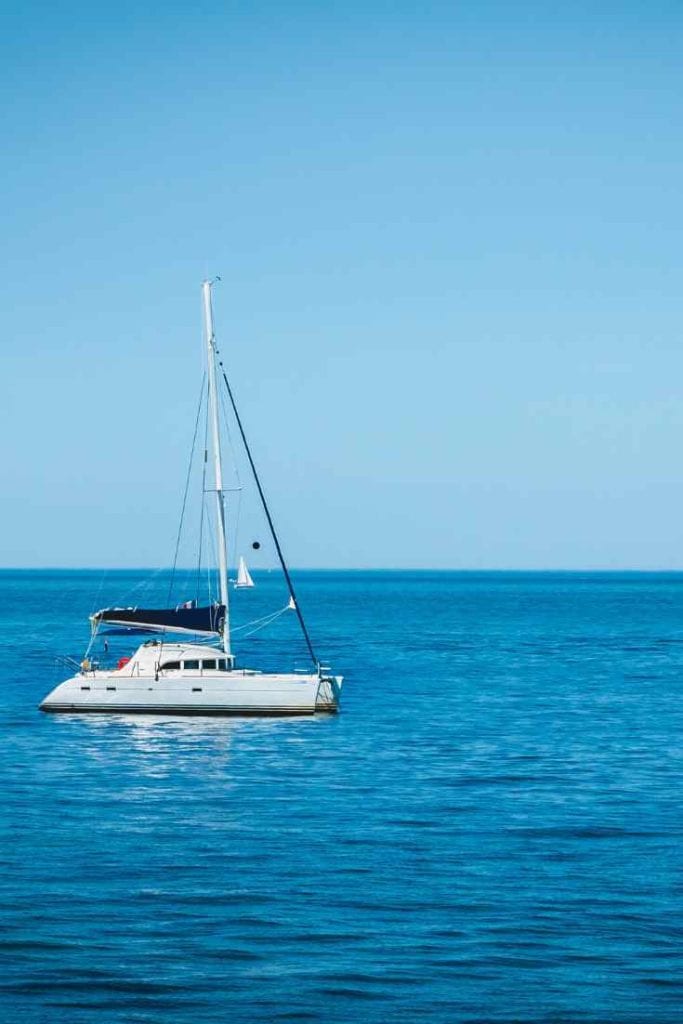Can You Leave Your Boat Anchored?
Traveling or just cruising on a boat can be one of the most eye-opening and life-changing experiences of your lifetime. Of course, it’s not all fun and games as there is a lot of upkeep and the hassle of finding a good anchoring spot for when you need to go on land for a night or when you want to leave the boat for a longer duration of time. The latter is a controversial point of debate amongst boat enthusiasts, so:
Can You Leave Your Boat Anchored?
Can you leave your boat anchored? The answer is yes, you can leave your boat anchored as long as the geographic, zoning, and property regulations in the specific area you are anchoring in don’t forbid it; unfortunately, this may limit your choices as most cities have laws that restrict anchoring.
The question really becomes, would you want to leave your boat anchored for a prolonged period of time? Read below to find out in what instances is it ok to leave your boat anchored and whether or not this is a safe and wise decision as well as the best practices when anchoring or mooring.
Can You Leave Your Boat Anchored and Unattended?

You can definitely leave your boat anchored and unattended; however, you may want to consider the restrictions and regulations of the countries and docks you are anchoring around as well as insurance and safety implications.
For the most part, there are more places where you can anchor than restricted zones. You’ll face the most trouble in prime spots like around highly visited harbors and tourist destinations all over the world.
Here are some points you should consider when looking for a place to anchor legally:
- Don’t anchor too close to moorings: Wherever you see moorings around harbors more often than not, it’s a no anchor area. The submerged mooring cables can cross your own anchor’s cable, causing a problem you don’t want to deal with.
- Stay away from “No Anchoring Zones”: This one is obvious, but not all areas have signs that clearly prohibit anchoring. You will have to check beforehand if the area you want to anchor around is a no anchoring zone. Most of the time these zones are cleared off for water sport and recreational purposes which is why the cities will restrict anchoring.
- Make note of geographic restrictions on anchoring: Some regions have anchoring bans on large areas mostly for environmental reasons. For instance, the Mediterranean restricts anchoring near the shores because it harms the sea-life below.
- Full Prohibition on Anchoring: In recent years, there have been large disputes over anchoring and leaving boats unattended for months at a time. This has led many countries and cities to place bans on anchoring altogether. For instance, Florida has had major legal battles over its restrictive anchoring laws.
- Don’t use a mooring if you don’t know who owns it: Mooring is not anchoring, but I’m including this point as a bonus. Sometimes the owner of a mooring will show up, and you aren’t there to move your boat, which can lead to major issues.
To avoid complications, you should research the anchoring laws before you set out somewhere. In the US, states and cities set the laws, but in Europe and around the world, you will likely face more serious federal laws.
In any case, violating restrictions on anchoring can get you anything from a warning to a citation, or even in some cases, law enforcement may have to tow your boat away.
How Long Can I Leave My Boat Anchored and Unattended

Some sailors just need a night or two on shore before heading back out on open waters, so they anchor for a few days; however, others anchor in legal zones and leave their boats unattended for weeks and even months on end.
Now, any seasoned boat lover knows the man-hours needed for a boat’s upkeep, and we don’t recommend that you leave your boat unattended for too long.
Still, some people choose to go down that route because they need to store their boats and don’t wish to pay high mooring costs. The question then becomes how long can you leave your boat unattended?
This really depends on the conditions, laws, and safety of the area where you are anchored. As a general rule, you should check on your unattended boat on a daily basis and always have it in clear line of sight.
Consider the following risks when you leave your boat anchored and unattended:
- Bad weather: this is your biggest point of concern as strong wings can drag your boat, yes, even when anchored. This can cause damages as well as the loss of property.
- Damages incurred: In most cases, you are responsible for the damages your boat does to other vessels while you are away. So if your anchor drags and your boat hits or scuffs against another, you are responsible for the damages.
- Insurance coverage: In the UK, for instance, insurance companies will only cover damages done to or by your boat if, while it is anchored and unattended, you have clear and direct vision of the vessel at all times. Most companies around the world won’t cover losses on unattended boats at all unless they are mooring and not anchored.
- Consider wildlife: Farmers deal with crows, and you have to deal with seagulls and other birds making a mess of your boat. If you are going to leave your vessel unattended at least place a bird scaring attraction.
- Safety: Apart from bad weather conditions, safety is your most important cause for concern when it comes to anchoring and leaving your boat unattended. Boats left unattended, even overnight not to mention for months on end, are prime targets for thieves. While you should definitely lock all of your belongings away, it still doesn’t guarantee criminals won’t harm your vessel.
- Gaining unwanted attention: If your boat sits in one location for a long period of time, it’s going to gain some unwanted attention from law enforcement and angry residents, especially if you are the only boat around.
Best Practices When Anchoring
Assuming you found an area where it is ok to anchor, and you are willing to take on the risk and responsibility of leaving a vessel unattended, here are some of the best practices you should keep in mind while anchoring.
Choosing the right spot:
- Choose a location with minimal exposure to wind and the elements
- Seabed should be able to handle anchoring so avoid grass-beds and rocks
- Pay attention to other boats around you and don’t intrude moorings and anchoring spots
- Make sure you are close enough to shore to easily get to and from your boat and the nearest dock
- Anchor somewhere that is clearly visible from shore in case anyway boards the ship while you are away
Other tips while anchoring:
- Scope out the area and make note of the weather conditions before and during anchoring
- Allow time for your anchor to really settle so that it won’t drag during high winds and waves
- Put a reasonable strain against your anchor until it is firm and feels set
- Dive below to see how well you are settled in (this goes for mooring as well, check to make sure the weight is still intact and nestled in firmly)
- While onshore, look around for marking points to get a reference for where the boat is in relation to other elements so that you can make a mental note of how much your boat has dragged, or it has remained stable
Follow these tips and instructions, give your anchoring system a safety check every now, and you should be fine most of the time.
There you have it, turns out you can leave your boat anchored and unattended as long as local and federal laws don’t prohibit you from doing so. Anchor properly and stay safe while out on the open water!
